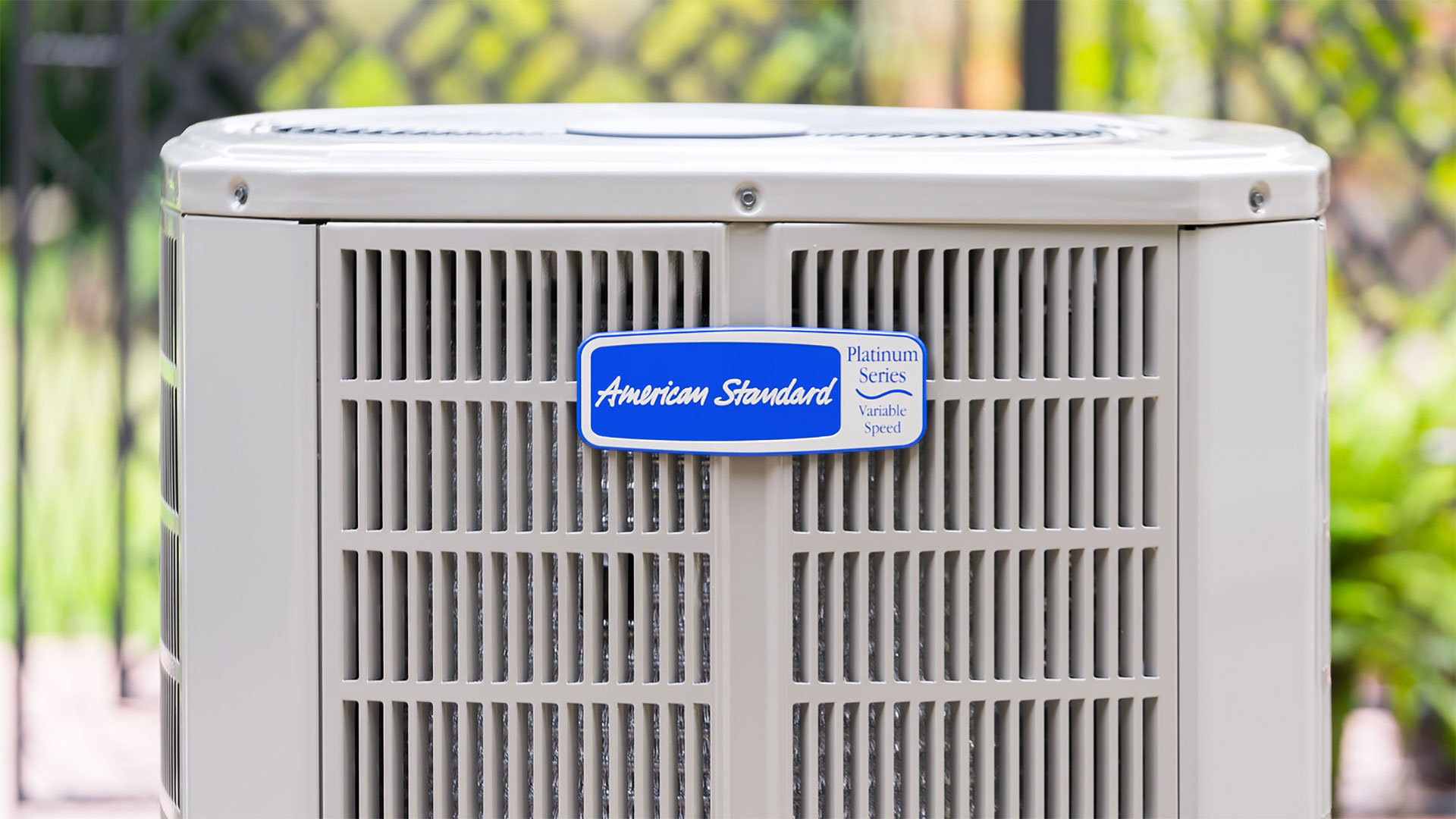Using chilled water is an innovative, energy-efficient way to cool large spaces. While these systems are often best for commercial buildings, large apartment complexes, and industrial facilities, they’re starting to make their way into single-family homes. If you’re looking to save on energy costs, the right chilled-water air conditioner can get you there. Keep reading to learn more about the ins and outs of these cooling systems.
How Chilled Water Air Conditioning Works
A chilled water AC unit has a few major components, including a chiller, a cooling tower, air handling or fan coil units, pumps, and a pipe network, all of which work together to cool a home.
The chiller is the heart of the system, and it uses a specialized refrigeration cycle to cool water to about 40–45°F. Pumps move the water through pipes to air-handling units throughout the system. Inside the air handling units, warm air from the room blows over cold coils with the chilled water inside, and heat from the warm air transfers to the water in the coils. Then, the cooled air travels through your ductwork to various spots in the home. The warm water returns to the AC unit to repeat the process. Pipes can also add more water to the cooling towers to replace water that evaporates into the air.
You can control the temperature at a thermostat, just like a conventional air conditioner. Many systems let you set different temperatures for different rooms or zones, which can help you save energy by raising the temperature in spaces you don’t use often.
Why Choose a Chilled Water Air Conditioner?
There are a few reasons why chilled water may be the right HVAC solution for you. Here’s why:
Less Refrigerant Use
Chilled water HVAC systems are partially water-cooled, which means they use water as a secondary refrigerant. Compared to other refrigerants like Freon, salt brines, ethylene, methanol, or glycerin, water is non-corrosive, non-toxic, and much cheaper to use. Water leaks also won’t risk harm to the ozone layer.
Energy Efficiency
Water has a higher heat capacity than air, so it takes less energy to move cool temperatures throughout a building. That translates to lower operating costs and less environmental impact, especially in large spaces where traditional air conditioners might not work consistently.
Improved Temperature Control
Chilled water systems allow you to control the temperature l throughout your home with added precision. You can set the temperature at conventional thermostats or use smart thermostats that control the temperature automatically based on a schedule you set. By keeping the temperature a little higher in spaces you don’t often use, you can save energy and money.
Longevity and Maintenance
Chilled water systems last longer than traditional air conditioners. Since the equipment is fairly centralized, maintenance is much easier. The reduced wear and tear on individual components can also lead to fewer breakdowns over time.
Is a Chilled Water Air Conditioner Right for Your Space?
Before you decide to install a chilled water air conditioner, you’ll need to consider these factors to make sure it’ll meet your needs:
- Home size: Chilled water systems are most efficient for larger homes. Small buildings may not benefit sufficiently enough to justify the higher costs.
- Up-front costs: Chilled water air conditioners tend to be more expensive than traditional ones. Weigh your potential savings and efficiency gains against the price tag.
- Space requirements: You’ll need to make space for the chiller and cooling tower, as well as install pipes between the main unit and the air handlers. If you don’t have space for the infrastructure without modifying your home, chilled water systems may not be the best fit for you.
- Local climate: If you live in a mild climate, the investment in a chilled water air conditioner may not yield significant returns compared to an area with extremely hot temperatures.
Maintenance and Upkeep
To keep your chilled water HVAC unit operating at its best, you need to perform ongoing upkeep. A faulty chiller or cooling tower won’t bode well for the system’s efficacy. So, inspect the chiller and cooling tower. Clean or replace the filter regularly in each air handling unit.
Check the water chemistry, as this prevents corrosion and scaling in the piping, chiller, cooling tower, and coils, and inspect the pumps and valves. If water can’t circulate, a chilled water air conditioner won’t work effectively.
You can do some maintenance and inspections yourself, but it’s best to have a professional HVAC technician handle more complex repairs. They have the expertise to keep all parts of your system in peak condition.
FAQs About Chilled Water Air Conditioning
A chilled water air conditioning system is a hydronic cooling system. It’s a type of central air conditioning that use water to transfer heat from indoor spaces to outside.
The main components in a chilled water system are a chiller unit, cooling tower, pumps, piping network, and air handling units or fan coil units. The chiller cools water, which moves through a network of pipes to air handling units. Air handlers, or blowers, blow air over condenser coils containing the cold water, and the cooled air moves throughout the building. Warm air then returns to the chiller to cool again, starting the process over.
Chilled water air conditioners use refrigerant, but not in the air handlers. The air handlers use water as their chilling medium. However, the chiller uses refrigerant to cool the water that’s then circulated to the air handlers. The refrigerant circuit is contained to the chiller in these systems.
Chilled water air conditioning systems have many advantages over regular AC units, especially for bigger buildings. They use less energy and are more efficient. Centralized equipment simplifies maintenance and reduces noises in occupied spaces.
These systems also allow for more precise temperature control in different areas, and can even heat and cool at the same time. They use less refrigerant, last longer, use less energy, and have a better indoor air quality than traditional HVAC systems. It’s more common to see these systems both in residential settings and business settings.










